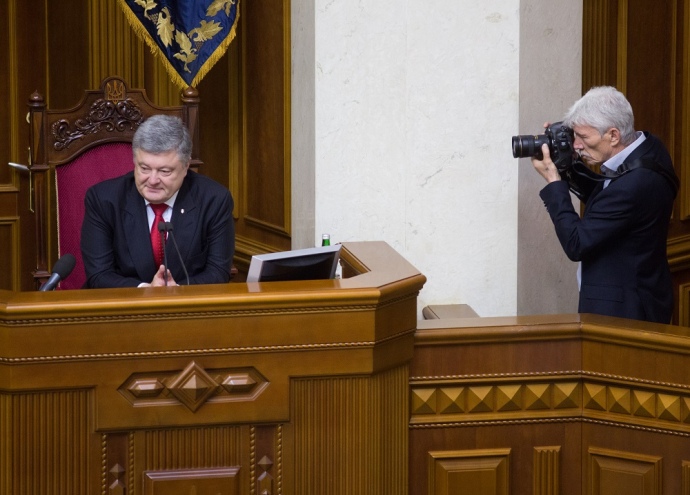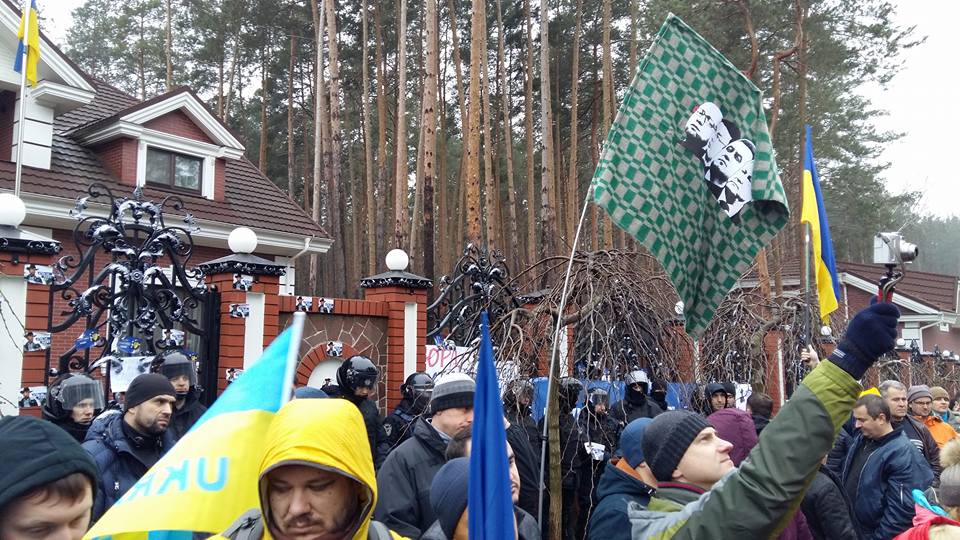During the last week of 2017, the text of the bill on the creation of the High Anti-Corruption Court, the institution which can push forward Ukraine's fight against corruption, appeared on the site of Verkhovna Rada (Parliament). This bill was drafted fully by the President's Administration. Civil society representatives and international organizations working in Ukraine already criticized the bill, noting that it doesn’t take into account the recommendations of the Venice Commission. They warn that if this particular text will be adopted, the effectiveness of the new institution is placed under a big question mark.
Ukrainian anti-corruption activists, the Venice Commission, IMF, the US, and the EU had demanded Ukraine create an Anti-Corruption Court, which would make sure that officials guilty of corruption would face punishment.
However, Ukrainian authorities, headed by President Petro Poroshenko, had opposed the idea, instead promoting the idea of separate anti-corruption chambers in existing courts.
Advocates of the Anti-Corruption Court’s creation argued that the institution is the missing link in the chain of investigative anti-corruption institutions. Up to now, the chain has been represented by the National Anti Corruption Bureau (NABU), an investigative institution, and the Specialized Anti-Corruption Prosecutor’s Office (SAP) which develops procedural guidelines. But to actually bring the culprits to justice, a court decision is required. Up till now, only one court had processed the anti-corruption cases: the Kyiv Solomianskyi District Court, as it is located in the same city district as NABU. Predictably, the court does not manage to deal with the load.
Read also: Civil society sees EU as a safeguard for creating Anti-Corruption Court in Ukraine
Just before the Venice Commission issued its recommendations in Autumn 2017, the President and his inner circle switched their narrative and finally recognized the need to create a separate court.
Since then, Ukraine's international partners kept insisting that a new bill on the court should be prepared as soon as possible. And the President Poroshenko kept repeating that the text will be prepared soon. The creation of an Anti-Corruption Court also became one of the demands of a large protest at the end of October.
Read also: 4500-strong protest at Ukrainian parliament demands “great political reform,” camps for the night
And the text did appear several days before the New Year, when all the attention is drawn to celebrations. Civil society representatives warn that the President’s Administration did not cooperate with them while working on the bill. And even the OSCE has stated that it has nothing to do with its creation, despite the bill originally planned to be a joint project.
“They said that there were some civilian representatives working on it. I do not know in what capacity, even though I know every society representative who is involved with the judiciary,” says the Director of the DEJURE foundation Mykhailo Zhernakov.
A number of anti-corruption organizations in Ukraine already expressed their discontent with the suggested by the President bill. Among them are Тransparency International Ukraine, Anti-Corruption Reform of the Reanimation Package of Reforms, the Anti-Corruption Action Center, StateWatch, Anti-Corruption Headquarters, Center of Policy and Legal Reform, and Automaidan.
Here are the main points of the bill which were criticized by anti-corruption activists and organizations:
- Foreign experts will be have only an advisory function. The Venice Commission, in line with society's request to involve international experts in the anti-Corruption Court, recommended they be given a key role. However, the draft bill will limit their role to an advisory one. As the experts’ role is envisioned to be monitoring the professional integrity of the anti-corruption judges of the Court, this may endanger its effectiveness.
- There are discriminatory demands regarding international participants who can appoint consultative experts for the selection of judges. According to the bill, only international organizations with which Ukraine cooperates in the area of fight against corruption can appoint experts. International agencies which provide technical support and finance anti-corruption reforms do not have such a right.
- The high demands to the candidates for the positions of judges. He or she should be a citizen of Ukraine, not younger than 35 years old, with a work experience as a judge not less than 5 years, with a scientific degree in law or at least 7 years experience in the scientific field. It would be extremely hard to find the candidates who fit the criteria.
- There is a danger of an overload. The Court was tasked to deal not only with NABU cases, but also those investigated by the National Police and and the State Investigative Bureau. According the Venice Commission it should have been only the cases of the jurisdiction of the NABU and SAP. If the current bill is adopted, there is a danger that the newly created court will be overloaded and will not be able to efficiently fight corruption.
- The bill makes the Anti-Corruption Court dependent on decisions of other bodies. The High Qualification Commission of Judges has the ultimate right to define whether a candidate has enough experience. The bill also does not list the amount of judges of the Anti-Corruption Court and gives this decision to the State Judicial Administration. So by it the bill makes the Court dependent on this state body.
When the work on creation of the Anti-Corruption Court was only announced, anti-corruption activists already expressed their fears regarding it. According to them, there were two main instruments with which Poroshenko and his inner circle could prevent this reform from happening not just on paper but in reality:
- protraction;
- not allowing independent international experts to take part in the process of selection of judges.
It seems now that both instruments have been used. It is already unlikely that the new court will start its work earlier than 2019, and the key role of independent international experts was replaced by a merely advisory one.
The next step is for the Parliament to vote on the bill. Transparency International and a number of anti-corruption institutions within the Reanimation Package of Reforms already called on Poroshenko to withdraw the document.





